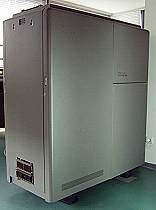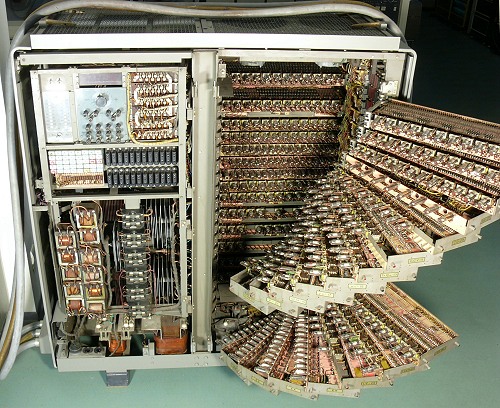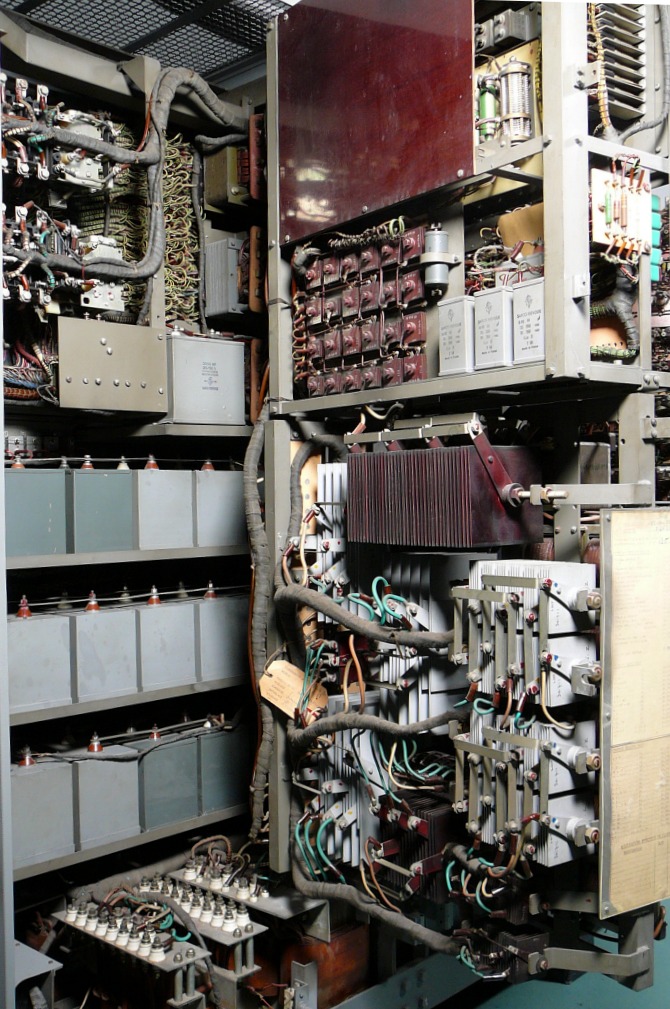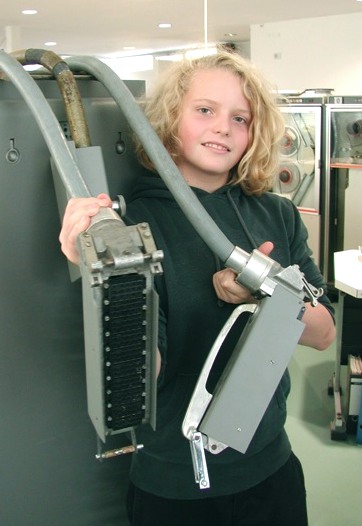A first generation tube calculator: BULL GAMMA 3

The BULL GAMMA 3 was build since 1952. At these days, such devices were
called "electronically calculating device" (original translation
from the BULL maintenance manual), "electron computer" or actually
"electron mastermind".
The device could be connected to several punchcard devices, for
example the Tabulating Machine BS,
to the card copier PRD or to the ULP puncher.
The former director of the BULL company, Pierre Letort, described in the magazine "Arts et Manufactures", No. 22, dated June 1953, the operation of the GAMMA 3:
"In its current configuration, the computer acts as an extension unit for the punched card machine it is connected to. The cards are read in the reader station which transmits data to the computer.
The computer in turn performs all necessary calculations and transmits the results back to the punched card machine which will print or punch these values. Regardless of the task, the computer is so fast that there is no visible delay caused by the calculations".

Tubes over Tubes: BULL GAMMA 3
enlarge picture
The modules could be folded out, hence the calculator is quite
service friendly. Two big fans circulate fresh air thorught the
case.
When this calculator is connected to our BULL Tabulating Machine,
all the information from the papertape reader brushes are directly
transfered to the GAMMA 3. Thus programs and data can be manipulated
directly by the GAMMA 3. The output is transfered back to the
printing unit from the Tabulating Machine.
Our GAMMA 3 installation is fully equipped and features seven
delay line memory units with a capacity
of 12 decimal digits each. To extend the built-in memory, there
were special so-called "storage cabinets"
that contained additional 24 storage units, each with a capacity
of 12 decimal numbers.
Summing up, the calculator features almost 400 electron tubes.
Thyratrons were used to connect this fast calculator to the slow
punchcard auxillary devices. A thyratron tube is capable of saving
temporary digital states.

Here you can see a part of the big power supply
This picture displays the monster power supply. 39 fuses keep the electric circuits seperated for additional security. Comparing to this, you can possibly imagine how power supplies of very big tube calculators looked like!
At these days, selenium rectifier were used to convert AC to DC. They are made from stacks of square plated with about 1µm of bismuth or nickel. A much thicker layer of selenium which has been doped with a halogen is deposited on top of the thin metal plating. The selenium is then converted into polycrystalline gray from by annealing. Each plate is able to withstand about 20 volts in the reverse direction. The metal squares, or disks, also serve as heat sinks in addition to providing a mounting place for the selenium disks. Plates can be stacked indefinitely to withstand higher voltages, as you can see in the lower right of the picture. At the left side you see dozens of electrolytic capacitors.

Gigantic cables connect the peripheral devices with the rather small (for its time) Gamma-3 vacuum tube computer